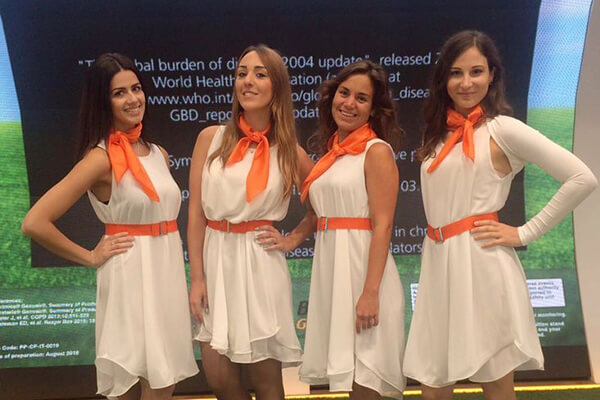HOSTESS
This checklist outlines the core duties and behavioral standards for event hostesses across pre-event, on-site, and post-event phases. It applies to diverse scenarios such as exhibitions, product launches, and ceremonies. Staff can clarify role expectations, while organizers may use it for training and performance evaluation.
Responsibilities of Event Hostesses
1. Greeting & Reception
◆ Greet guests at the event entrance with a smile, guide them to sign in politely.
◆ Verify invitations or e-tickets, assist in distributing event materials or souvenirs.
2. Direction Guidance
◆ Familiarize with venue layout, guide guests to designated areas (e.g., main hall,
exhibition booths, lounge).
◆ Provide priority assistance to guests with special needs (e.g., VIPs, disabled
individuals).
3. On-site Support
◆ Assist organizers in facilitating event procedures (e.g., award ceremonies,
ribbon-cutting, opening ceremonies).
◆ Manage queue order and answer basic inquiries (e.g., restroom locations,
catering areas).
4. Image Presentation
◆ Maintain professional demeanor (posture, gestures, expressions) to reflect the
event’s brand image.
◆ Wear designated uniforms neatly and display event badges as required.
5. Protocol Services
◆ Assist VIPs with boutonnieres, hand over microphones/gifts, and provide tray
services with grace.
◆ Coordinate with media for photo sessions, arrange guest positioning and
interactions.
6. Emergency Handling
◆ Promptly identify and report emergencies (e.g., equipment failure, guest
conflicts).
◆ Possess basic first aid and evacuation knowledge, collaborate with security for
safety control.
7. Post-event Duties
◆ Assist in collecting materials, tidying up registration areas, and returning
equipment.
◆ Provide feedback on issues and improvement suggestions, complete other
tasks assigned by organizers.
Core Competencies
◆ Bilingual communication skills (Chinese & English)
◆ Adaptability and stress management
◆ Basic knowledge of business etiquette
◆ Teamwork awareness
This checklist can be tailored to specific event types. Pre-event rehearsals and protocol training are recommended.



